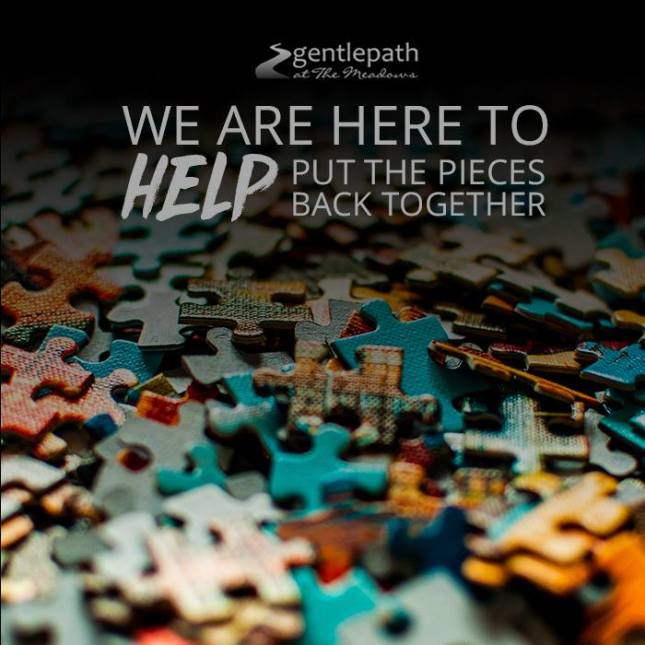Content Source
Alexandra Katehakis, Ph.D., Clinical Sexologist and Clinical Director of Center for Healthy Sex in California, provides her take on the current influx of sexual harassment and assault allegations of celebrities in her new piece The Seeds of Cultural Change: The Death of Misogyny and the Empowerment of Women . The article speculates the cause of the accused’s’ actions and discusses the cultural reasons that their actions have been allowed to persist.
Read the full article here: The Seeds of Cultural Change
Tags: A Gentle Path, addicted to porn, addicted to pornography, addicted to sex, addiction, christian sex addiction, counseling for sex addiction, Don't Call it Love, Dr. Patrick Carnes, help for sex addictio, help for sex addiction, how to cure sex addiction, how to stop sex addiction, inpatient treatment for sex addiction, male sex addiction, male sex addiction treatment, Out of the Shadows, overcoming pornography addiction, Patrick Carnes, porn addiction, porn addiction help, pornography addiction, pornography addiction help, sex, sex addict, Sex addiction, sex addiction help, sex addiction recovery, sex addiction rehab, sex addiction Therapy, sex addiction treatment, Sex Addicts, sex addition, sexual addiction, Sexual Anorexia, The Gentle Path, treatment for sex addiction, what is sex addiction

Source Link: Sex Addiction Inpatient Treatment
Irene Jacobs, Program Director for Willow House, hosted a webinar recently addressing relationship healing through mindfulness. Her counseling background has shaped her passion in the field of trauma and addiction. Her experience includes sex addiction, love addiction, relationship and intimacy issues, victims of domestic sex trafficking, human trafficking, survivors of torture, self harm, personality disorders, addictions, and disordered eating.

Irene Jacobs, Program Director for Willow House, hosted a webinar recently addressing relationship healing through mindfulness. Her counseling background has shaped her passion in the field of trauma and addiction. Her experience includes sex addiction, love addiction, relationship and intimacy issues, victims of domestic sex trafficking, human trafficking, survivors of torture, self harm, personality disorders, addictions, and disordered eating.
During this webinar, Jacobs will address the times of discord and emotional missteps in a relationship and how to deal with them. When relationship partners come together to work through miscommunication issues, getting on the same page emotionally is one of the challenges. This presentation offers a unique perspective of the internal dynamic that occurs in relationships. During the presentation, relational interactions are broken down into three stages with descriptions of each one and the corresponding challenges unique to the first two stages addressed. The third relational stage explores psychological and spiritual healing with a focus on Mindfulness.

Mindfulness skill building will be taught using practical tools with relational acceptance and emotional/situational neutrality. After viewing this webinar, you will be able to list the three stages of relationship interaction, identify the challenges inherent in each stage of relationship interaction, describe the mindfulness skills that are effective in relational acceptance as related to the third stage of relational interaction.
Tags: A Gentle Path, addicted to porn, addicted to pornography, addicted to sex, addiction, christian sex addiction, counseling for sex addiction, Don't Call it Love, Dr. Patrick Carnes, help for sex addictio, help for sex addiction, how to cure sex addiction, how to stop sex addiction, inpatient treatment for sex addiction, male sex addiction treatment, Out of the Shadows, overcoming pornography addiction, Patrick Carnes, porn addiction, porn addiction help, pornography addiction, pornography addiction help, sex, sex addict, Sex addiction, sex addiction help, sex addiction recovery, sex addiction rehab, sex addiction Therapy, sex addiction treatment, Sex Addicts, sex addition, sexual addiction, Sexual Anorexia, The Gentle Path, treatment for sex addiction, what is sex addiction


Located in Wickenburg, Arizona, Gentle Path at The Meadows provide an intensive, experientially based 45-day treatment program for men with complex issues surrounding pornography and sex addictions. Gentle Path’s men-only atmosphere allows patients to drop their facades and invites them to work through the shame. Call 866-240-4931 and seek help.
You are not alone. Call (866) 364-8880 or visit our website to learn more about our program.
Tags: A Gentle Path, addicted to porn, addicted to pornography, addicted to sex, addiction, christian sex addiction, counseling for sex addiction, Don't Call it Love, Dr. Patrick Carnes, help for sex addictio, help for sex addiction, how to cure sex addiction, how to stop sex addiction, inpatient treatment for sex addiction, male sex addiction, male sex addiction treatment, Out of the Shadows, overcoming pornography addiction, Patrick Carnes, porn addiction, porn addiction help, pornography addiction, pornography addiction help, sex, sex addict, Sex addiction, sex addiction help, sex addiction recovery, sex addiction rehab, sex addiction Therapy, sex addiction treatment, Sex Addicts, sex addition, sexual addiction, Sexual Anorexia, The Gentle Path, treatment for sex addiction, what is sex addiction

Meadows Behavioral Healthcare has made a commitment to offering a series of webinars designed for working professionals. The short courses offer real-world applicable knowledge clinical professionals can use in their work with patients struggling with addiction, trauma, and co-occurring conditions. Webinars are presented during the lunch hour and provide professional development opportunities while earning continuing education credit or NBCC clock hour for attendance
Here’s what participants said about the recent webinar:
“The presenter was direct, concise, and clear (in addition to being personable and funny)… the presentation was logical and easy to follow. Couldn’t ask for a better webinar, felt like a great use of my time.”

“I only signed up for the course to fill in some CEUs, but it was very informative and good to see someone speak candidly about this stuff in an informative light instead of a berating light that often get used when talking about addiction.”
“This was incredibly relevant for my work with traditional-age college students. Perhaps my one suggestion would be to make it a longer presentation due to the breadth of material.”

“The topic is so vast that an hour seemed inadequate. I wonder if a series would be helpful. I would definitely appreciate it. I also appreciate the LGBTQ recognition.”
To receive notification of future webinars offered by Meadows Behavioral Healthcare, sign up here.
Content Source : Drugs-Sex & Tech-Professional-Development – Webinar
Tags: A Gentle Path, addicted to porn, addicted to pornography, addicted to sex, addiction, christian sex addiction, counseling for sex addiction, Don't Call it Love, Dr. Patrick Carnes, help for sex addictio, help for sex addiction, how to cure sex addiction, how to stop sex addiction, inpatient treatment for sex addiction, male sex addiction, male sex addiction treatment, Out of the Shadows, overcoming pornography addiction, Patrick Carnes, porn addiction, porn addiction help, pornography addiction, pornography addiction help, sex, sex addict, Sex addiction, sex addiction help, sex addiction recovery, sex addiction rehab, sex addiction Therapy, sex addiction treatment, Sex Addicts, sex addition, sexual addiction, Sexual Anorexia, The Gentle Path, treatment for sex addiction, what is sex addiction

Sexual addicts experience tremendous amounts of guilt and shame over their behavior because they feel they are not in control and live in constant fear of being discovered. This is part of drives the addictive cycle of how to cure sex addiction; sex addicts will use inappropriate sexual behavior to block out the very pain of their addiction. Like other forms of addiction, sex addicts are not in control and cannot stop their behaviors, no matter how self-destructive and potentially devastating the consequences may be.

At Gentle Path at The Meadows, our sole purpose is to help men understand that long lasting recovery from their sexual addictions is possible.
Content Source : Sex Addiction Treatment

Tags: A Gentle Path, addicted to porn, addicted to pornography, addicted to sex, addiction, christian sex addiction, counseling for sex addiction, Don't Call it Love, Dr. Patrick Carnes, help for sex addictio, help for sex addiction, how to cure sex addiction, how to stop sex addiction, inpatient treatment for sex addiction, male sex addiction, male sex addiction treatment, Out of the Shadows, overcoming pornography addiction, Patrick Carnes, porn addiction, porn addiction help, pornography addiction, pornography addiction help, sex, sex addict, Sex addiction, sex addiction help, sex addiction recovery, sex addiction rehab, sex addiction Therapy, sex addiction treatment, Sex Addicts, sex addition, sexual addiction, Sexual Anorexia, The Gentle Path, treatment for sex addiction, what is sex addiction

Content Source : Sex Addiction Treatment

Therapies utilized to treat anxiety or depression depends on the type and severity of symptoms, as well as any possible causes. At Gentle Path at the Meadows men are guided on their journey of recovery by examining the underlying causes of addiction and co-occurring disorders. The goal is for these individuals to gain the courage to face difficult issues, including grief and loss; heal from emotional trauma; and become accountable for their own feelings, behaviors, and recovery.

Prolonged depression can be debilitating and take a toll on a person’s well being. Depression is caused by a number of factors, most involving trauma of some type. If left untreated, depression can seriously impact the quality of – or even ruin – an individual’s life.
What are the effects of depression?
Depression is often expressed as persistent:
- Unhappiness
- Hopelessness
- Loss of interest and/or pleasure in usual activities
- Difficulty concentrating
- Insomnia or oversleeping
- Fatigue
- Anxiety
Tags: A Gentle Path, addicted to porn, addicted to pornography, addicted to sex, addiction, christian sex addiction, counseling for sex addiction, Don't Call it Love, Dr. Patrick Carnes, help for sex addictio, help for sex addiction, how to cure sex addiction, how to stop sex addiction, inpatient treatment for sex addiction, male sex addiction, male sex addiction treatment, Out of the Shadows, overcoming pornography addiction, Patrick Carnes, porn addiction, porn addiction help, pornography addiction, pornography addiction help, sex, sex addict, Sex addiction, sex addiction help, sex addiction recovery, sex addiction rehab, sex addiction Therapy, sex addiction treatment, Sex Addicts, sex addition, sexual addiction, Sexual Anorexia, The Gentle Path, treatment for sex addiction, what is sex addiction

Gentle Path at The Meadows will launch its inaugural Alumni Days event October 12-14, 2017. Past patients have been invited back to campus to interact with the staff, peers, and current patients to share their Experience, Strength, and Hope with each other.

The Gentle Path staff and administration don’t believe our treatment ends when a patient discharges after 45 days. We take a keen interest in how our patients progress, the struggles that they go through, and the successes that they experience. The men at Gentle Path are not just patients; they are considered friends and become a part of our extended Gentle Path family, frequently contacting us and to let us know how they are doing.

Patients who have completed our program have experienced the process of reintegrating back into life and that knowledge can be invaluable to current patients. This awareness is what lead us to invite our alumni back to campus to share that experience, strength, and hope.

Gentle Path Executive Director Allan Benham said, “When we came up with the concept for this program we reached out to several alumni and the response was overwhelmingly positive. Within two days of sending out the invitation for the event, we filled all 15 available spots with alumni from around the United States.” Moreover, Benham said Gentle Path has a waiting list for future events.
“We are delighted that so many of our alumni want to come back and show off their recovery so plans for more event in 2018 are already in the works!” he said.
Content Source : Addiction Interaction Disorder
Tags: A Gentle Path, addicted to porn, addicted to pornography, addicted to sex, addiction, christian sex addiction, counseling for sex addiction, Don't Call it Love, Dr. Patrick Carnes, help for sex addictio, help for sex addiction, how to cure sex addiction, how to stop sex addiction, inpatient treatment for sex addiction, male sex addiction, male sex addiction treatment, Out of the Shadows, overcoming pornography addiction, Patrick Carnes, porn addiction, porn addiction help, pornography addiction, pornography addiction help, sex, sex addict, Sex addiction, sex addiction help, sex addiction recovery, sex addiction rehab, sex addiction Therapy, sex addiction treatment, Sex Addicts, sex addition, sexual addiction, Sexual Anorexia, The Gentle Path, treatment for sex addiction, what is sex addiction

While your loved one is an admitted patient at Gentle Path at The Meadows, contact will be limited. However, Gentle Path at The Meadows offers opportunities for families to interact and come together in the healing and recovery process during family week. Families coming to Wickenburg, Arizona for Family Week are responsible for their own lodging, reservations and cancellations.

To Inquire about lodging please contact the Wickenburg Chamber of Commerce at 928-684-5479.
Start Your Journey Today

Gentle Path at The Meadows, located in Wickenburg, Arizona, provides an intensive, experientially based 45-day treatment program for men with the complex issues of sexual addictions.
We are a Behavioral Health Inpatient Facility with 28 beds, providing the highest level of care dedicated exclusively to men suffering from sexual addictions. We are accredited by The Joint Commission which demonstrates our ongoing commitment to safe, high quality care, and treatment. Patients can be assured that they will receive outstanding care at Gentle Path at The Meadows.

In a safe and nurturing community composed of their peers, men are guided on their journey of recovery by examining the underlying causes of addiction and co-occurring disorders. The goal is for these individuals to gain the courage to face difficult issues, including grief and loss; heal from emotional trauma; and become accountable for their own feelings, behaviors, and recovery. Visit us here or feel free to phone us at 866-811-8265.
Content Source : Healing and Recovery Center
Tags: A Gentle Path, addicted to porn, addicted to pornography, addicted to sex, addiction, christian sex addiction, counseling for sex addiction, Don't Call it Love, Dr. Patrick Carnes, help for sex addictio, help for sex addiction, how to cure sex addiction, how to stop sex addiction, inpatient treatment for sex addiction, male sex addiction, male sex addiction treatment, Out of the Shadows, overcoming pornography addiction, Patrick Carnes, porn addiction, porn addiction help, pornography addiction, pornography addiction help, sex, sex addict, Sex addiction, sex addiction help, sex addiction recovery, sex addiction rehab, sex addiction Therapy, sex addiction treatment, Sex Addicts, sex addition, sexual addiction, Sexual Anorexia, The Gentle Path, treatment for sex addiction, what is sex addiction
Once a month, the Workshop team is treated to a consultation from Pia Mellody, the creator of the Survivors workshop treatment model. She makes herself available, both to consult on clinical cases, answer and process questions and to inspire us with her wise adages for the spirituality of recovery. Often, I leave our gatherings with notes in hand to share with my workshop groups.

A recent example of one of these inspirational mini-lectures is the concept of using our character strengths to learn the lessons that our weaknesses present to us. Being human means we are inherently imperfect. Being human also means that we are given opportunity to improve our quality of life. Pia frequently reminds us, “Our strengths don’t make us better-than and our weakness’ don’t make us less-than. We ought to be grateful for our strengths and learn from our weakness”.
We all have weaknesses: Weaknesses of character that show up to remind us of our humanity and imperfection. For most people, weaknesses are a source of personal lack or toxic shame. What we perceive as weaknesses may keep us in a one-down position, or keep us from trying new endeavors, or keep us stuck in seemingly endless despair.
What if we begin to think of our weaknesses as an opportunity to learn important life lessons? Life is about learning, which is an act of spiritual creation. Our short-comings are soul-lessons that encourage us to grow in emotional, mental, ethical and/or spiritual ways. As we strive to become more respectful, thoughtful, balanced and moderate, we enter into an arena of greater awareness about ourselves and the world we live in.
Thankfully, we all have strengths as well. Strengths are gifts. We are given those gifts to help us overcome our short-comings, to learn the lessons of life, and to help ourselves and others in this world. Sadly, some people plead that they haven’t any strengths to be noted. This is a cognitive distortion! EVERYONE is given strengths that encourage us and give us a sense of purpose. As a baby, you probably taught yourself to walk. That is called strength! You have perseverance.
Sometimes we think of our strengths in a much too limited fashion. For example, baking a perfect soufflé requires more abilities than just whipping some eggs. Baking a soufflé requires an amount of focus, a light touch, and diligence. Develop those skills into strengths that will assist you as you address the greater lessons in your life.
How do you discern what your strengths are? To start, make a list of your values. What ethics do you employ? List your interests, what are the best parts of those interests? What about your accomplishments in school, at work, with partnerships, with your family and friends, with hobbies or sports participation? What do those positive thoughts tell you about your strengths?
As with all change, the challenge is to continue, to persevere until it is accomplished. Just keep reminding yourself that you learned to walk; therefore, you can learn life lessons using your gifts to develop more strength. Now, go learn something!
Content Source : Humanity and Imperfection
Tags: A Gentle Path, addicted to porn, addicted to pornography, addicted to sex, addiction, christian sex addiction, counseling for sex addiction, Don't Call it Love, Dr. Patrick Carnes, help for sex addiction, how to cure sex addiction, how to stop sex addiction, inpatient treatment for sex addiction, male sex addiction, male sex addiction treatment, Out of the Shadows, overcoming pornography addiction, Patrick Carnes, porn addiction, porn addiction help, pornography addiction, pornography addiction help, sex, sex addict, Sex addiction, sex addiction help, sex addiction recovery, sex addiction rehab, sex addiction Therapy, sex addiction treatment, Sex Addicts, sex addition, sexual addiction, Sexual Anorexia, The Gentle Path, treatment for sex addiction, what is sex addiction
By Crystal Nesfield, Trauma Therapist, Willow House at The Meadows
While the impact of sexual addiction is becoming more widely understood, and treatment for sexual addiction more widely available, the issues associated with sexual anorexia are often overlooked.
Sexual anorexia is a compulsive avoidance of giving or receiving social, sexual, or emotional nourishment. This is much like a food anorexia, in which a person refuses all nourishment through food, but instead of refusing food, people with sexual anorexia refuse to fulfill their need for intimacy.Sexual anorexia and sexual addiction could be considered to be on opposite ends of the same spectrum. On one end of the spectrum, a person is sexually binging, while on the other end, a person is sexually restricting. However, the two are actually very similar in some ways. Both conditions can lead the person to experience powerlessness over their behaviors, and consequences for their behaviors and both can impact every aspect of a person’s life. Additionally, both conditions share the tendency for the person to have obsessive thoughts about sex. A person with sexual anorexia has obsessive thinking around the avoidance of sex and intimacy. A person with a sexual addiction has obsessive thoughts around obtaining sexual gratification.
A person with sexual anorexia may experience an uncontrollable need to avoid sexual behaviors at all costs. This often leads to self-destructive patterns and negative impacts on their relationships. A person with sexual anorexia may experience depression, restlessness, irritability or anxiety when engaging in sexual contact, or when faced with the possibility of engaging in an intimate relationship. Interestingly, however, the person with sexual addiction often faces the same emotional consequences when abstaining from sexual contact. And both the person who is compulsively engaging in sexual behavior and the person who is compulsively avoiding sexual behavior may have rigid or judgmental beliefs about their sexuality that they attempt to overcome through their behaviors.
Also, both sexual anorexia and sexual addiction can have similar origins. Either condition can manifest in a person who has grown up in an environment where sex was believed to be shameful, and/or where they experienced sexual abuse or exploitation. Many types of trauma also often lead to distorted beliefs pertaining to sex. Both people with sexual addiction and people with sexual anorexia may be attempting to control unresolved trauma or uncontrolled feelings by either bingeing on sexual behaviors or depriving themselves of intimacy.
By abstaining from intimate relationships and isolating themselves, a person with sexual anorexia is attempting to protect themselves from further harm. This person may go to extreme lengths to avoid relationships. This could include self-mutilation or adjusting their appearance. A person with sexual addiction may go to extreme lengths to engage in sexual behaviors, such as exposure to disease or bodily harm.
With both sexual addiction and sexual anorexia, a person has difficulty forming healthy, intimate relationships, and both feature symptoms of a deeper issue the person may be experiencing and need to be addressed through the appropriate treatment. This may include attending a 12-step meeting focusing on compulsive sexual behaviors, such as SLAA or SAA, and working with a qualified therapist. By engaging in treatment for sexual anorexia, a person can begin to form healthy relationships and have a more fulfilling life.
Content Source
Tags: help for sex addictio, help for sex addiction, inpatient treatment for sex addiction
















